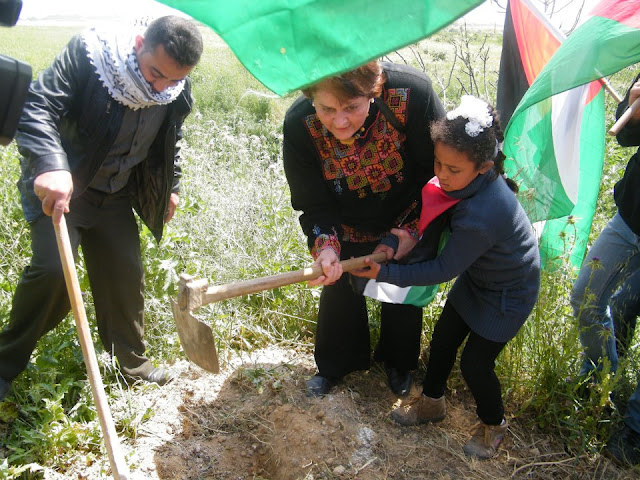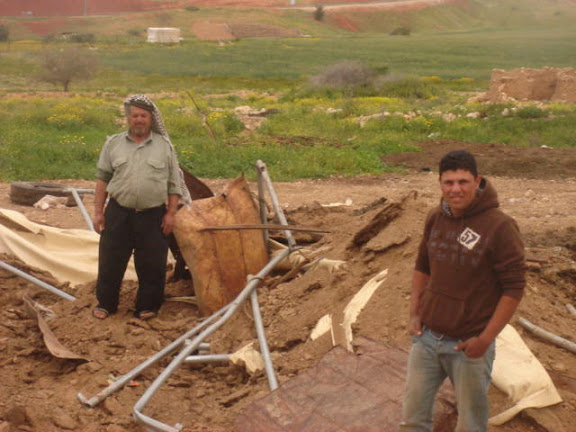Year: 2012
-
Beit Hanoun: Celebrating the land and culture of Palestine
by Nathan Stuckey 29 March 2012 | International Solidarity Movement, Gaza Today, Beit Hanoun celebrated Land Day. It is true that Land Day isn’t really until tomorrow, but tomorrow is the Global March to Jerusalem, tomorrow, God willing, Land Day can be celebrated on the land from which the refugees were expelled 64 years ago.…
-
Settlers attack internationals accompanying school children on Shuhada Street
by Paige 28 March 2012 | International Solidarity Movement, West Bank Today at around 1 PM extremist settler Anat Cohen attacked a Canadian woman accompanying school children, and a few minutes later sent two teenage settlers to throw rocks at the Canadian woman and a Finnish man. The attack occurred at the bottom of the…
-
Demolitions: Israel’s path of destruction through the Jordan Valley
by Andreas 27 March 2012 | International Solidarity Movement, West Bank Families and their livestock are left without shelter as Israeli Occupation Forces soldiers and bulldozers leave a path of destruction El Hemmi, al-Farisiya and Khirbet Homse in the Jordan Valley On the 26th of March several houses and animal barricades were demolished in the…


